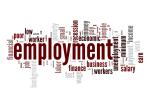CHICAGO — The first days of the new year are an excellent time for dry cleaners to review what the past year brought and to make plans to capture every opportunity that becomes available in the months ahead.
In Part 1 of this series, we reviewed elements of the past year that had a direct impact on the coming 12 months, including the ever-tightening labor market. Today, we’ll look at possible solutions, along with predictions about the economic landscape of 2024.
Automation Stations
One of the possible solutions to the labor crunch is to embrace technology that eliminates the need for so many employees. “Automation” might be the watchword of 2024.
“Dry cleaners need to start embracing automation for some of their tasks,” says Dawn Avery, interim executive director for the National Cleaners Association (NCA). “That will reduce some of the employees. It’s not going to reduce them all — it’s still a hands-on job — but they could reduce some of their mundane daily tasks with the use of programs, AI, or whatever is out there for them to use. I think that they could reduce labor costs and get more done. You could be more productive.”
“I think that, because labor is not going to get better for a long time, operators are being forced to look incredibly seriously about the automation of anything that they can automate,” agrees Kermit Engh, owner of Fashion Cleaners in Omaha, Nebraska, and managing partner of consulting firm Methods for Management (MfM). “One of the major changes that has happened in this last year has been the adoption of 24-hour kiosks that allow stores to be open without being staffed.”
Engh has seen the value in kiosk technology both from the experiences of MfM members and from his own experience as a dry cleaner.
“I’ve spoken to numerous operators who have gotten multiples of these, and they will never go back,” he says. “It allows them to reduce the number of hours open in a store, or in the case of somebody calling in sick, the store doesn’t close. That’s been my experience, as well. In our company, we installed one of these back in April, and it’s been fabulous.”
The Bigger Picture
While economist Chris Kuehl, managing director of Armada Corporate Intelligence, believes that the United States will avoid a recession — defined as two consecutive quarters of negative growth — that factor doesn’t paint the complete picture.
“You’re seeing a lot of difference in different parts of the country,” he says. “California is losing a lot of population because people are fleeing (from) high taxes and high cost of living. But if you go someplace like Texas, things are going great, because they’re all moving there from California to escape the taxes. You see a lot of growth in places like Tennessee and the Carolinas, and even the middle of the country, often at the expense of the West Coast, and to a certain extent, the Northeast.”
This disparity between geographic parts of the country makes the concept of a national recession less important than looking at the situation regionally, according to Kuehl.
“You could look at some parts of the country and say, ‘Yeah, California is likely to get some recessionary periods,’” he says. “But if you bring up the ‘R’ word and Carolina, they’re just going to laugh at you and say, ‘You’re not from around here, are you?’”
Kuehl says that the sheer size of California, in fact, can skew economic data for the country as a whole.
“One of the things that always distorts the U.S. is that California is such a major part of our national GDP,” he says. “All by itself, California is the 11th largest GDP in the world. And so, if they’re having a bad year, it looks like the whole U.S. is having a bad year. And then people that are in the Carolinas or South Dakota are saying, ‘That doesn’t mean anything — we’re not tied to that.’ South Dakota, for instance, has an unemployment rate of 1.1%.”
Come back Tuesday for the conclusion of this series, when we’ll explore the reasons why there are reasons to be optimistic for 2024 for those with the right mindset. For Part 2 of this series, click HERE.
Have a question or comment? E-mail our editor Dave Davis at [email protected].




























































